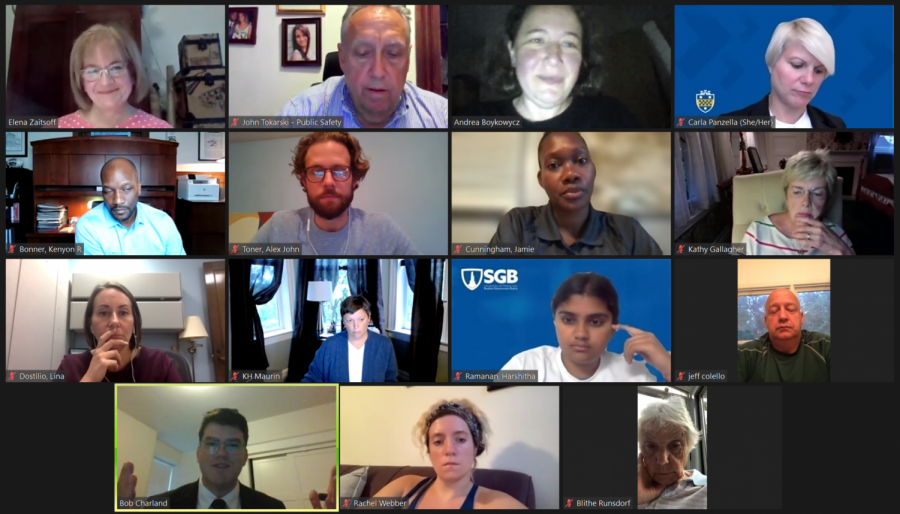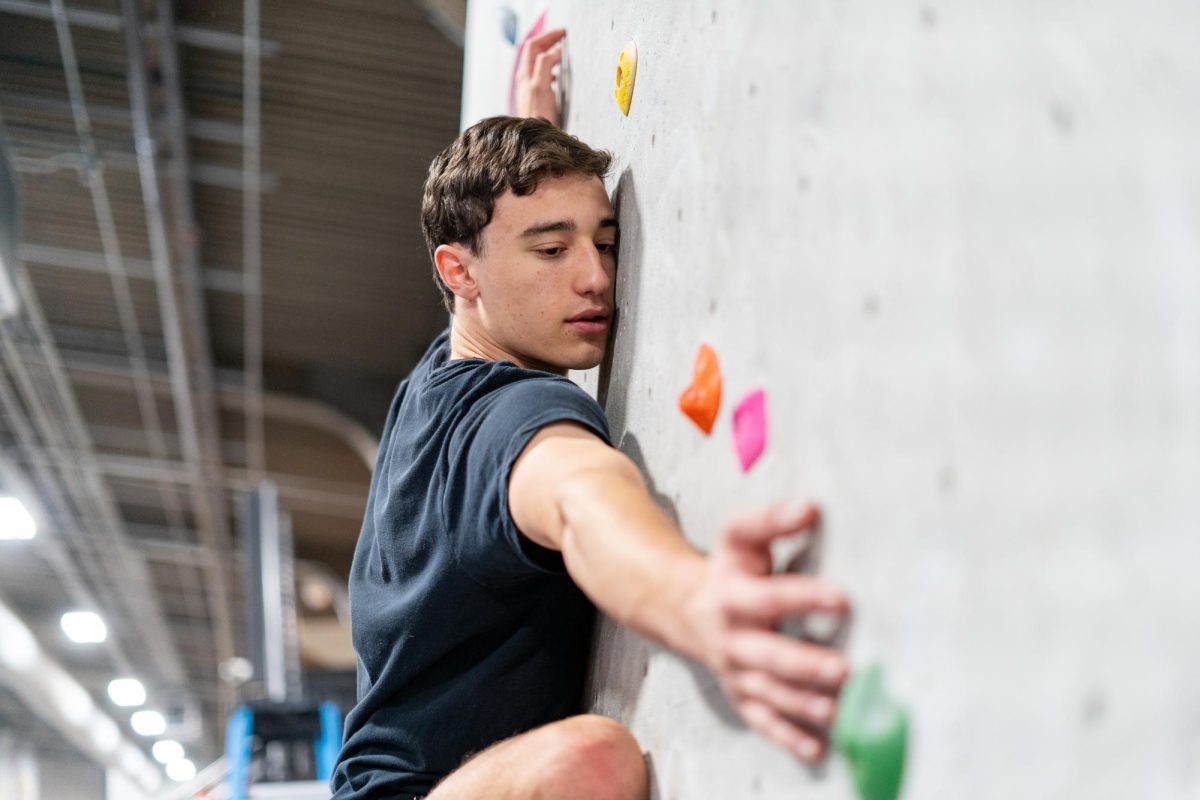OPDC discusses ‘Welsfest’ block party
The Oakland Planning and Development Corp. held its Oakwatch meeting on Wednesday over Zoom to talk more in-depth about the recent back-to-school partying and Oakland’s zoning districts.
September 24, 2021
“Welsfest” — a late August block party on Oakland’s Welsford Street — was not just the talk of the town for Pitt students. Oakland community members shared their takes at a community meeting on the block party, which had more than 1,000 Pitt students in attendance.
The Oakland Planning and Development Corp. held an Oakwatch/Let’s Talk meeting on Wednesday over Zoom to talk in more depth about the recent back-to-school partying, as well as a Walnut Capital plan to reshape parts of Central Oakland. According to Kenyon Bonner, vice provost for student affairs, he and his team closely monitored social media during Welsfest, and discussed expectations before the event to ensure the organizers followed guidelines established by a permit granted through the City’s special events office.
“We were made aware of the application for [the] permit in advance of that Saturday. There were several folks from Pitt who were involved in, one, talking to the city as well as following up with the students to be proactive,” Bonner said. “Eventually, the permit was approved, so the students had the sort of opportunity to go through the process that’s been laid out for them.”
Lina Dostilio, the vice chancellor for engagement and community affairs, said her team was aware of the permit and started to hold conversations with the students running the event about Pitt’s expectations to prevent turmoil.
“Our office was the first office to receive notice that a permit application had been filed, and that’s what sets into motion the proactivity,” Dostilio said. “That’s what actually leads us to have conversations with other offices on campus. Those offices then reach out and have those developmental conversations with the students.”
Elena Zaitsoff, an Oakland resident, said she was confused about how the event could reach 1,000 students when the permit noted that the limit was approximately 200 students. According to Jamie Cunningham, a Pitt police officer, the block party permit had no restrictions on how many people could attend. It was when Welsfest started to spread to other locations that the Pitt police got involved.
“The proactive part during the event is that we had officers patrolling that area. We were aware of the permit. They were patrolling the area to make sure it was still contained to Welsford,” Cunningham said. “It doesn’t state a specific number [of people allowed].”
Pitt police officer Jeff Colello said Welsfest should have been contained with more authority.
“On the application, it also says they’re supposed to have a plan for if it gets out of hand. That’s not like that … that didn’t just happen in five minutes,” Colello said, “A thousand kids didn’t converge on that in five minutes. Whoever was running it should have at the very least shut the DJ down.”
Lieutenant Eric Kroll, the acting City police commander for Zone 4, said he was made aware that the party would have around several hundred students, but stated there was no confrontation between students and authorities.
“I think they were told that there could be a reasonable amount of people … but I believe that they were told around a level of about 300 people,” Kroll said. “From what I understand … I think the residents there, we didn’t have any complaints of damage. We didn’t have any trash leftover, and the party dispersed without incident. We did not have any citations or arrests or anything linked to there.”
According to Bonner, the University was “definitely monitored social media for things that may be important for us to have on our radar,” including Welsfest.
“Our team became aware of this event on Welsford when the police interacted with the students and told them they needed to shut down the event because there were people there that had spilled onto other streets, and at that point, that’s not really what the permit allowed them to do,” Bonner said.
Cunningham said after the party was shut down and students started to disperse from the street, the police spoke with the individual that had the permit and advised them that “the street needed to be cleaned up.”
Cunningham added that the students “complied” with “no confrontation” and “did what they needed to do to make sure the street reopened.”
Community members also discussed the next steps moving forward after Welsfest, such as potentially changing the process of obtaining a permit and putting a limit on the amount of event participants. Dostilio said she had gone through the process of how Pitt would act in future situations like Welsfest and learn from the experience.
“As a University, we want to see our students behaving in a healthy, safe, respectful way,” Dostilio said, “One of the things that has happened in the intervening … weeks since this particular incident, is we’ve had an opportunity … to sit down tando talk about how we can give the city more feedback about the ways they’re taking information for block party permits.”
John Tokarski, the SaferTogether coordinator for the City’s public safety department, said the City will be more aware in the future of what permits are issued in the future, and acknowledged the efforts of Pitt’s police department that weekend.
“Legally, we’re not permitted to deny it, but there will be extreme, extreme, critical review of anything that’s applied for that’s similar to that. Pitt police and our police were there, and all we can do now is try to address how we are going to fix it in the future.”
Despite Welsfest raising concerns, Dostilio said Pitt would continue to help students stay responsible and healthy in social situations and encourage communication within the community.
“We do not want to see our students behaving in a manner that’s not healthy and safe,” Dostilio said. “We absolutely take proactive steps to make sure that we’re talking with our students. We are very interested in working with our neighbors to make sure that we’re in a conducive, productive relationship and that we help our students to be in the same.”



